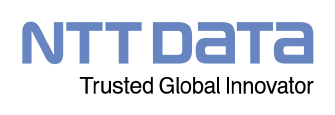Legacy systems and their modernization processes have always been a very neglected area of software development: they take a lot of work and require specific IT professionals that specialize in those legacy systems the company is willing to migrate to a modern technology.
These kind of migration processes represent a very particular scenario in software development: neither the client that has a legacy system to migrate nor the service provider know anything about the project before it gets started.
Therefore, the legacy experts must take a significant amount of time just to get to know how the system works before they can start to migrate into the new technology, which means these projects tend to be very costly: they take a lot of time from a very specialized and uncommon professional.
Before low-code applications emerged, the options for companies looking to migrate their legacy systems were clear: either they hired those specialists’ consulting services or they opted for keeping the application intact, knowing no changes could be made to it and hoping for the best.
Low-code tools offer their own approach to legacy systems: they either create an application that hypothetically does exactly what the legacy one did, knowing this statement can’t be proved neither right nor wrong, or they evolve the legacy system with a new one they generate to cover the clients’ needs. Either way, this approach never gets into the application itself to work on it, but rather seeks out parallel ways to get to the desired outcome. This may work short-term, and is surely cheaper than having a legacy consultant renovate an application, yet it is not sustainable long-term, since the problem is still there and the legacy system remains intact and unmanageable.
In other words, no low-code tool works with legacy systems, and if your company wants that kind of service, you must hire a legacy consultant.
However, Dedalow provides a new approach towards legacy system modernization: we are a full scope End2End platform, and we are able to extract information from your legacy system, import it into our platform, and leverage it to generate code in whichever modern technology your company prefers. On top of that, Dedalow is a big project environment, so the platform is designed to support many people working in a single project, which is key to speed up these processes.
So what exactly can a model-based software engineering low-code platform like Dedalow offer in a legacy system modernization scenario?
We have designed a system that aligns with our workflow and philosophy to allow developers to work with legacy systems without the above-mentioned legacy expertise. This system works in three steps, and you can choose whether to leverage all of them or just some depending on your applications’ situation and specific needs:
- Dedalow is able to understand your legacy system as an expert team would, and automatically imports the information from it into the platforms’ models, so your developers can deeply understand the application’s behavior. This helps get the migration process started.
- Instead of your developers having to manage all the information that is now in the models in order to create a modernization or migration plan, Dedalow adds in some tools to analyze that information inside the models and then recommends a migration strategy to follow. This essentially automates migration consulting.
- Not only has information been imported into the models to kick start the project and then a strategy has been recommended, but on top of that the migrated application is generated according to said strategy.
All of these steps make up a complete legacy system migration that can take place leveraging Dedalow’s capabilities.
Not only that, but Dedalow does not just read the application’s code: it also extracts and imports information from databases and execution logs, as well as bug reports. Therefore, information like this can be obtained: 7% of the application’s code is related to 85% of its use and contains half of the reported bugs, so you may want to start migrating that part, which is what will generate the most impact.
To summarize, Dedalow provides a new approach towards legacy system modernization that will empower your team and render them capable of migrating these complex and obsolete applications in a collaborative model-based environment where any future changes to the system will be simpler to make than ever. Your company will benefit from great cost reduction, as well as the possibility to easily and safely create manageable modern technology applications from their obsolete legacy systems.

